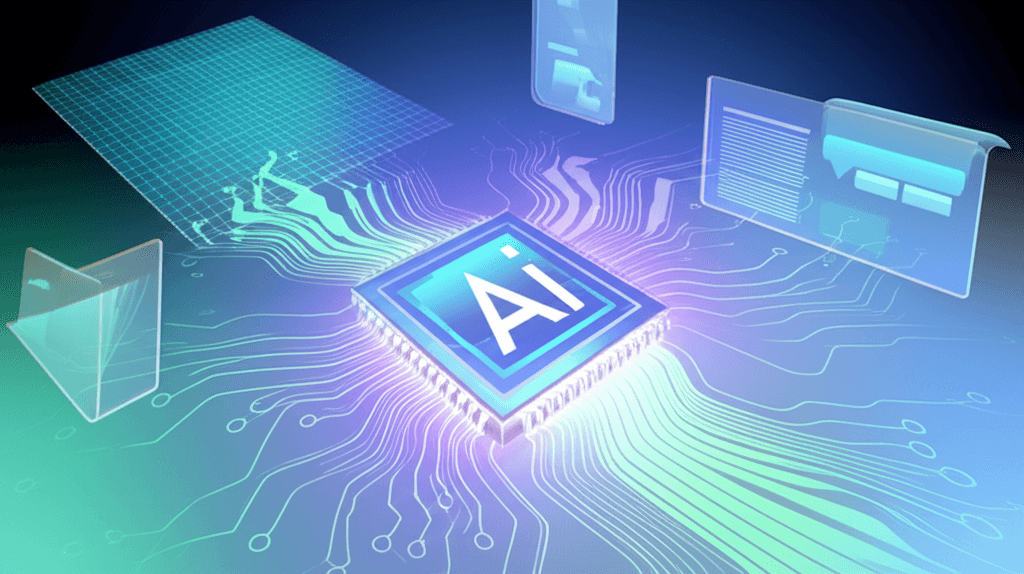OpenAI Transforms ChatGPT Into Productivity Hub, Threatens Office Software Giants
ChatGPT evolves into a comprehensive work tool with integrated spreadsheets and presentations, directly challenging Microsoft and Google.
July 16, 2025

OpenAI is developing and testing new features for ChatGPT that will allow users to create and edit spreadsheets and presentations directly within the chatbot's interface, a move that signals a significant strategic push into the productivity software market long dominated by giants like Microsoft and Google. According to reports, these new capabilities are part of a broader effort to evolve ChatGPT from a conversational AI into a comprehensive work tool powered by more autonomous "AI agents."[1][2][3] This development could fundamentally alter how knowledge workers approach daily tasks, moving routine document creation and data manipulation into a conversational, AI-driven environment.
The new tools, which are being tested by some users, are designed to generate files compatible with Microsoft Excel and PowerPoint.[3] This compatibility is a key strategic element, as it leverages the open-source nature of Microsoft's .xlsx and .pptx file formats, allowing OpenAI to build these features without requiring direct permission or partnership with its own major investor, Microsoft.[1][3] Users will reportedly be able to initiate a spreadsheet or presentation workflow through new buttons integrated into the ChatGPT interface.[3] While current versions of ChatGPT can generate text-based content for these applications, the new tools aim for a more native editing experience, potentially within a "Canvas" mode that allows for direct manipulation of layouts, formulas, and visual elements.[4][5] This would represent a substantial leap from the current process, which often involves copying and pasting text or downloading static, uneditable files.[5] However, early versions of these features may have limitations, including slower performance and the absence of real-time collaboration and cloud storage functions that are standard in established productivity suites.[2][6]
This foray into productivity software places OpenAI in direct competition with the core offerings of both Microsoft 365 and Google Workspace.[6] Both tech behemoths have been aggressively integrating their own AI models—Copilot and Gemini, respectively—into their suites of applications. While Microsoft has a deep partnership with OpenAI, this new initiative suggests a complex dynamic where the two companies are both collaborators and potential rivals. By building tools that could reduce reliance on Excel and PowerPoint, OpenAI is positioning ChatGPT as a potential all-in-one platform for office tasks, blurring the lines between a chatbot and a full-fledged productivity suite.[2][6] This strategy aims to embed ChatGPT more deeply into daily business workflows, moving beyond simple text generation to handle more complex, multi-step processes.[6] The ultimate goal appears to be the creation of a lightweight productivity platform capable of handling many everyday office tasks without users needing to open traditional software applications.[2]
The technology underpinning this new functionality is the concept of AI agents—autonomous systems designed to perform complex, multi-step tasks with minimal human intervention.[3][7] These agents represent the next frontier in artificial intelligence, moving beyond reactive responses to proactive task execution.[8][9] In this context, an AI agent could be instructed to "create a sales report from the latest quarterly data and present it in a 10-slide presentation," and it would then autonomously gather the data, generate the analysis in a spreadsheet, create the corresponding slides, and present the final output.[1][2][3] OpenAI is reportedly developing sophisticated agents capable of generating reports from corporate or public data, scheduling meetings, and performing other web-based actions.[3] This aligns with a broader industry trend toward creating a "digital labor force" where AI agents augment human workers by automating routine and time-consuming administrative and analytical work.[10][11] The development of these agents is seen as a critical step toward making AI an integral part of the workforce, enhancing productivity by freeing up employees to focus on more strategic, creative, and high-value work.[11][12]
In conclusion, OpenAI's development of integrated presentation and spreadsheet agents within ChatGPT marks a pivotal moment in the evolution of AI-powered productivity. By directly challenging the incumbents, Microsoft and Google, OpenAI is not just adding new features but is proposing a new paradigm for how work is done—one that is more conversational, automated, and centralized within a single AI interface. While the initial tools may have limitations, they are a clear declaration of OpenAI's ambition to transform ChatGPT into an indispensable assistant for the modern knowledge worker. The success of this venture will depend on overcoming technical hurdles, ensuring a seamless user experience, and convincing users to shift long-standing habits. The broader implication is a future where AI agents become common, handling complex workflows and reshaping job roles by automating a significant portion of digital administrative and analytical tasks.[10]